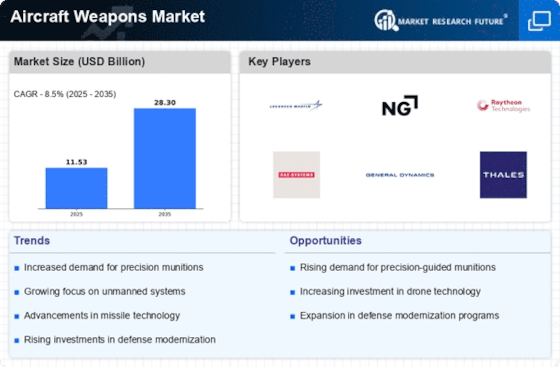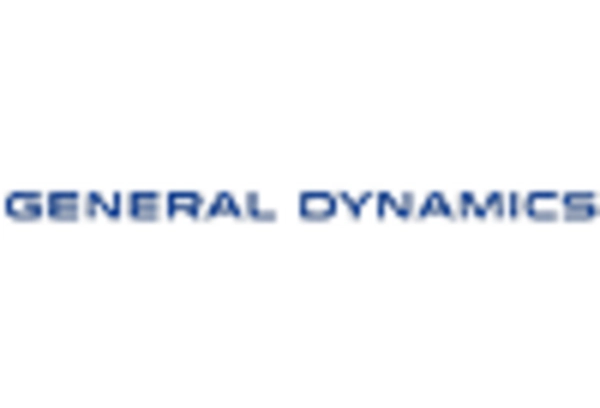Market Analysis
In-depth Analysis of Aircraft Weapons Market Industry Landscape
The market dynamics of the Aircraft Weapons Market are influenced by a combination of factors reflecting evolving military strategies, geopolitical tensions, technological advancements, defense budgets, and regulatory considerations. Aircraft weapons encompass a wide range of munitions, including air-to-air missiles, air-to-ground missiles, precision-guided bombs, cannons, and other ordnance, designed to enhance the offensive and defensive capabilities of military aircraft across various mission profiles.
One significant driver of the demand for aircraft weapons is the evolving nature of modern warfare and defense strategies. As military operations increasingly involve asymmetric threats, non-state actors, and contested environments, defense forces worldwide prioritize investments in advanced weapons systems to maintain air superiority, deter aggression, and achieve mission success. Aircraft weapons play a crucial role in enabling precision strike capabilities, conducting close air support operations, and neutralizing high-value targets with minimal collateral damage, thereby enhancing the effectiveness and lethality of air power projection.
Technological advancements play a pivotal role in shaping the dynamics of the aircraft weapons market. Innovations in guidance systems, propulsion technologies, materials science, and warhead design enable the development of next-generation weapons systems with improved accuracy, range, lethality, and reliability. Precision-guided munitions (PGMs) equipped with satellite navigation, inertial guidance, and laser or radar seekers offer enhanced targeting capabilities and reduced risk of collateral damage, enabling more precise and effective engagement of enemy assets while minimizing civilian casualties.
Furthermore, geopolitical tensions and regional conflicts drive the demand for aircraft weapons systems. Defense forces facing threats from hostile actors or engaged in expeditionary operations seek to bolster their offensive and defensive capabilities with advanced weapons systems. As geopolitical rivalries intensify and regional instability persists, nations invest in upgrading their air combat capabilities, modernizing their aircraft fleets, and procuring cutting-edge weapons technologies to maintain strategic deterrence and respond effectively to emerging threats.
Moreover, defense budgets and military modernization programs influence the dynamics of the aircraft weapons market. Governments allocate significant funds for defense spending to enhance national security, protect sovereign interests, and maintain military readiness. Defense procurement programs prioritize investments in aircraft weapons systems that offer superior performance, interoperability, and cost-effectiveness, while also considering factors such as lifecycle costs, technology transfer, and industrial partnerships. Additionally, multinational collaborations and joint development initiatives facilitate the pooling of resources and expertise to develop advanced weapons systems that meet common defense requirements and interoperability standards.
However, challenges exist in the aircraft weapons market, including arms control agreements, export controls, and proliferation concerns. International treaties, such as the Arms Trade Treaty (ATT) and the Missile Technology Control Regime (MTCR), impose restrictions on the export, transfer, and proliferation of certain categories of weapons and technologies to prevent their misuse and proliferation. Export controls and regulatory compliance requirements imposed by exporting countries limit market access and growth opportunities for aircraft weapons manufacturers, while also ensuring adherence to non-proliferation objectives and international security norms.


















Leave a Comment